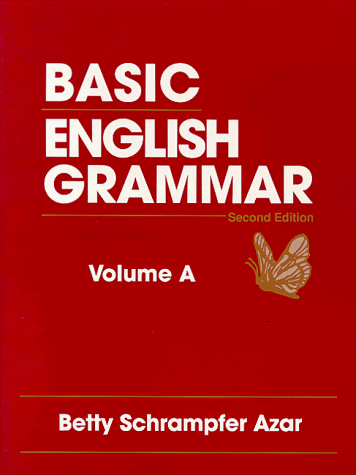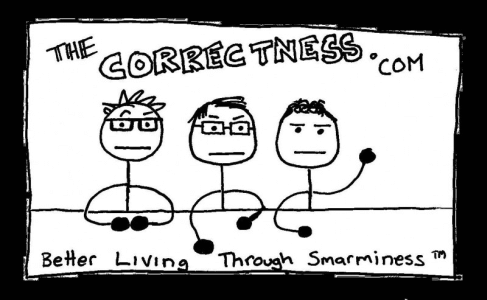Handy Grammar Tips pt. 14: Perfect Tenses

Oh, hello Correctness Readers. I didn’t see you there. I literally didn’t, because I wrote this in the past, from your point of view as the reader, and you are not at the moment wherever you are right now when you will read this, or more clearly, when you are currently reading this, ie: you are reading this now, but not then (your past) when I wrote it, so I couldn’t see you there because of the linear passage of time. Capiche? Also, I wrote this at home, so, i’ll be quite surprised if you are here when you do read this, or rather, now that you are reading it (your present), I hope you are not in my home (my future). Capichier?
Some of you fine folks know I’ve gone back to school to learn to teach English as a second language, because my first 2 degrees are worth jack shit to nobody, no how. Also, my film school diploma is only useful for settling arguments about why I enjoyed Sucked Punch and why everyone else was so very wrong about it. My point being that I have a lot of post secondary accreditation, and I am unemployed.
In any case, I would like to clarify an important point of grammar for you. Admin_Rock and I were discussing perfect tenses, particularly the present perfect, and we had a lively debate about the best usage of the amiable perfect tense.
What makes these tenses so perfect? Well, according to some guy, the phrase actually refers to the Latin “per fecta” which means “completely done”. This makes some sense, because ESL teachers perpetrate an amazing lie and take great pains to convince English language learners that the present perfect tense is used primarily for describing an action which began in the past, and has continuing implications in the present. For example:
“Oh God, I have lived in Calgary for 31 years.”
This is the present perfect tense because it uses the present form of the verb “to have” and the past participle form of any verb, in this case “lived”. This is a textbook (literally fucking textbook) use of the present perfect tense. Yes, despite the fact that it describes a past event, albeit an ongoing one, it is technically a present tense. Tense has nothing to do with what time it is, you’ll be most horrified to recall.
The reason I bring it up is because I was able to generate far more exceptions to this rule than proofs. Several creepy exceptions follow:
“Has Molly Milked the cows? Yes, Molly has milked the cows”. Does that mean molly is currently milking the cows? No, it does not. Could I say “Yes, Molly milked the cows”? Yes I could. But would I? Hard to say.
What if I say “Molly’s milked the cows before. and she’ll do it again” Is she milking the cows right now? No, but I’ll bet she has supple hands that are good for all kinds of things. We usually use the present simple to describe habitual actions, as in the case of “Molly moisturizes her supple yet dainty hands daily”, and yet we know Molly will return to the fields, he perfect, porcelain skin gleaming in the sun as she works those udders.
“Molly has capitalized on her supple hands, and is making it big in the city”. Again, another incidence of present perfect, though in this case, it arguably suggests she continues to capitalize on her her skills, as well as her soft, feminine form which is accentuated by her innocent demeanour, and silken auburn curls.
Also, the difference between present perfect and present perfect continuous is not always straightforward. For example “I have dreamt of Molly for years” and “I have been dreaming of Molly for years” is virtually negligible to my ear, and yet the two tenses are intended to serve different purposes.
The past and future forms of the perfect tense are no more consistent.
“Molly had lost her virtue before I got to her” is typical. That is a past event completed before another past event. However, “Molly had quivered in anticipation of my arrival” Is not typical – I can only assume as a non expert – because it leaves out a presumed simple past tense clause like “Molly had quivered in aniticipation of my arrival, and delighted all the more when I roughly took her in the hay loft”.
Future perfect constructions are somewhat more clear, though I suggest you may find exceptions to them quite easily.
“Good on that douchehammer for running off with my ex, he will have learned about VD firsthand by now.” makes a good example. Another might be “By the time he gets home today, he will have already eaten out that skeezy vag one too many times” (“eaten out” is a phrasal verb). Note the frequent necessity of a phrase like “By the time”, or some similar construction (correct me if I am wrong readers, is that an adverbial clause?).
“When my ex finally comes crawling back, I will have married Molly” is fine. It also works in the negative, as in “Here is some good news: I will not have gotten chlamydia just from being in the same room as that bitch my ex”.
Returning to the present perfect, are we arguably misusing the tense when we say things like “I have given Molly so many orgasms she can’t use numbers anymore, and she doesn’t even care” or “Molly’s had so much joy in her life that she blows me for no reason these days”. We could say those in the present simple “I gave Molly so many orgasms” or “Molly has so much joy in her life”. Capichiest?
Feel free to leave you opinion below, and once you have had your say, I will poop in your eye socket.
